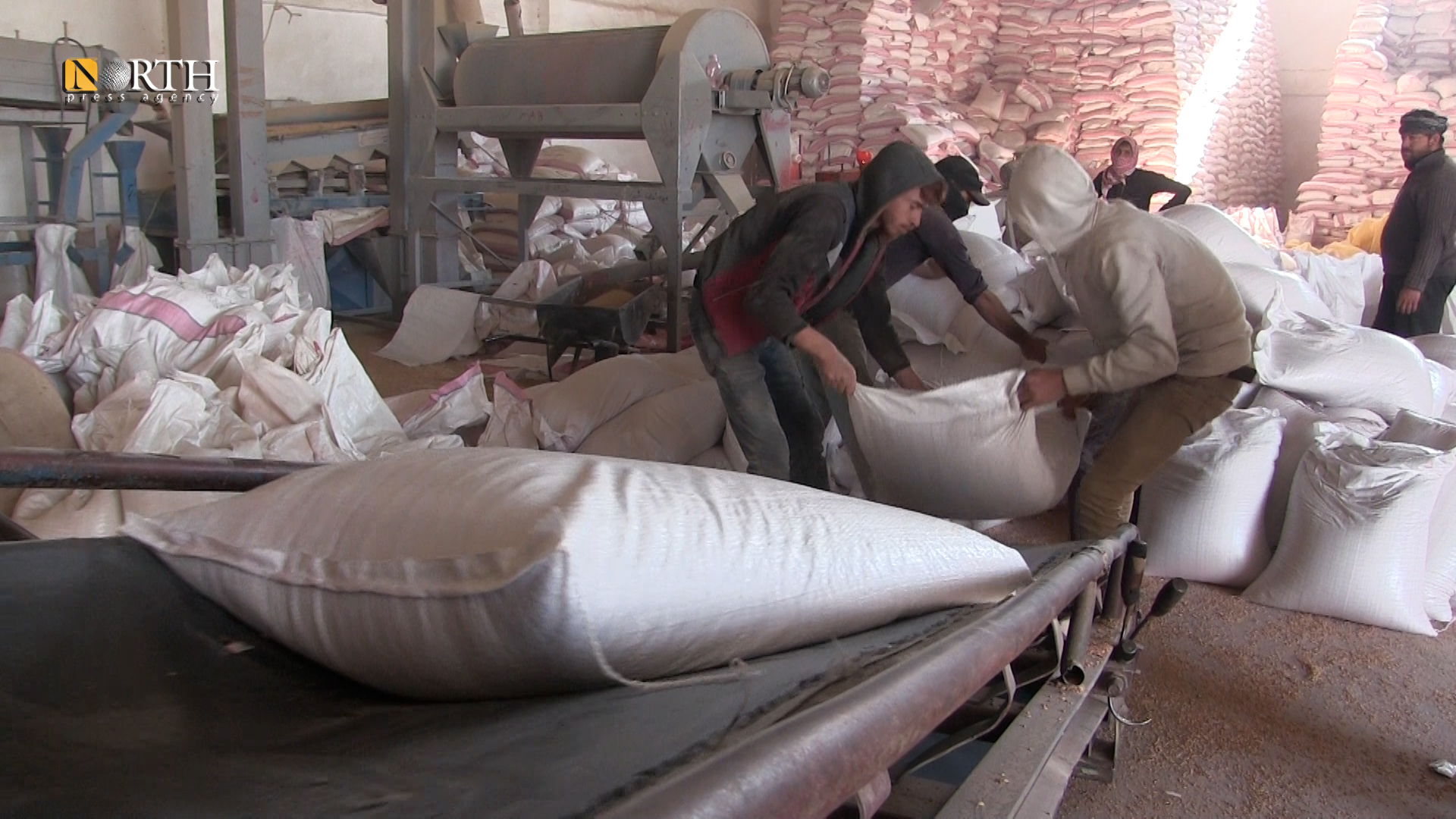US Agency provides 3,000 tons of wheat seeds for Syria’s northeast
QAMISHLI, Syria (North Press) – On Wednesday, US Agency for International Development (USAID) decided to send about 3,000 tons of wheat seeds to Syria’s northeast.
As a result of the low cultivation production, low rainfalls in light of the drought that worsened with the Turkish cutoff of the Euphrates River water supply to Syrian territory, the coming season will form a challenge to the Autonomous Administration of North and East Syria (AANES).
For more than three months, Turkey has limited the flow of the Euphrates into Syria, depriving large numbers of people of usable water. Turkey reduced the flow of water from the Euphrates River into northeast Syria’s dam gradually, reducing the amount of water received to unprecedented lows.
In different times during 2021, officials in the agriculture and economic fields of areas in north and east Syria announced that the production of the last season will not meet the region’s needs of bread, seeds, and fodder.
In a previous statement by co-chair of the Economy and Agriculture Board of AANES, Salman Barudo, expected that the production of wheat would meet about two-thirds of the needs of Syria’s northeast and that the administration is ready to import wheat to meet the needs of the region.
Meanwhile, the AANES set the price of wheat seeds at 1,200 Syrian pounds (SYP, about $0.34) and began the distribution process early, while the price in markets reached 1,700 SYP (about $0.49).
Insufficient supplies
“Demands of Syrian farmers of aid after witnessing drought, conflict, and weak seed productions in northeast Syria, prompted us to send the seeds to the region,” US Agency for International Development said.
These factors caused shortage in the quantities of seeds of this year’s agriculture season amidst fears regarding the future seasons and food supplies.
The first batch was subjected to quality examinations and it is on the way to be delivered to the Syrian farmers, the US Embassy in Damascus cited the US Agency as saying.
Over a decade of war in Syria, most economic sectors have deteriorated, production declined, and price hike continued.
However, deterioration of agriculture production threatened with losing bread and lack of basic food products that residents rely on for their livelihood.
International reports revealed that more than 90% of Syrians are living under poverty line after a decade of war.
Drought
Cultivation and grazing livestock in areas of Raqqa, Hasakah, and Deir ez-Zor are main sources for income for most of the families in these areas.
Thus, losing seasons and not being able to cultivate crops due to lack of seeds and water form a serious dilemma in the region.
Since the problem of seeds is going towards solution, the water issue is “the next Syrian tragedy”, according to reports by the The Times.
The Khabur River, which was so swollen with floodwaters just a few years ago that it was an impenetrable front line in the war between Islamic State and their Kurdish and Christian enemies, now it has disappeared, The Times said, yesterday.
“The local residents who fled during the war have not returned to farm the land, and the desert is spreading in the face of a devastating drought across Syria” it noted.

